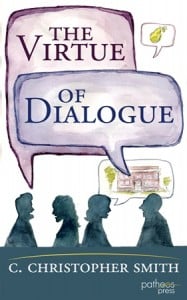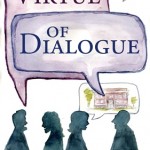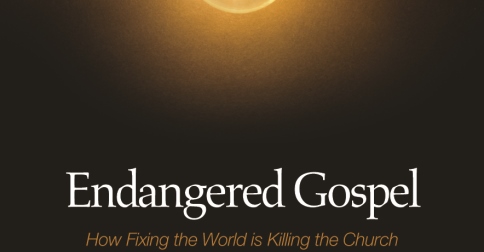 My ebook The Virtue of Dialogue: Conversation as a Hopeful Practice of Church Communities was recently released by Patheos Press, and in it, I argue that open conversation is essential for the health and flourishing of church communities and the places they inhabit.
My ebook The Virtue of Dialogue: Conversation as a Hopeful Practice of Church Communities was recently released by Patheos Press, and in it, I argue that open conversation is essential for the health and flourishing of church communities and the places they inhabit.
Over the past week and the current week, I will be running a 10-part series that I am calling “Becoming Conversational” in which I offer suggestions for how churches might enrich the conversational life of their church communities. (Some of these ideas have been adapted from my earlier ebook, Growing Deeper in Our Church Communities, which is available for free download here.
#9) Regularly Share a Meal Together.
Recovering the practice of meeting together around the table and sharing an ordinary meal together is a down-to-earth and practical way for us to celebrate together God’s provision for us and to extend the care that God shows for us to one another and to our neighbors. Although we tend to lose sight of this reality in our industrialized Western culture, the food that we have to share together is a gift of God from the earth. Although on the more familiar level, we remember in our meal together the sacrifice of Christ’s life, we also are partaking in the sacrifices of Christ’s creation that are made in order to bring the food to our table – the death of plants and animals, as well as the sweat of those who labored to grow, process and prepare the food. Following in the Israelite tradition in which he had been raised, we find Jesus not only offering the bread and the cup to his disciples but first, giving thanks to God and in all likelihood, using the familiar Jewish mealtime blessing: “Blessed art Thou, God, King of the Universe, by whose goodness we have this bread to share” (J.H. Yoder, Body Politics 19). As we partake of the meal together in humble gratitude for all the sacrifices that have been made on our behalf, we are called to follow after Jesus in offering ourselves as a sacrifice for our brothers and sisters and our neighbors. In sharing an ordinary meal together, these sacrifices begin to ebb out of the abstract realm of symbol and become tangible in the food that is set before us.
The mere logistics of sharing meals together on a regular basis – and particularly doing so as an Eucharistic expression – plunges us into a deep sea of questions related to our shared Christian discipleship. What are we going to eat? Where will it come from and at what cost to laborers and the environment? How do we treat members who chose to abstain from certain types of food and drink for reasons of allergies or moral convictions? Who is going to do the work needed to prepare, serve and clean up after the meal? Many of the themes that have emerged over the course of this book, rise again in these sorts of questions that we must ask ourselves as we seek to eat faithfully together. The common meal – however often we celebrate it – forces us to reach way up into the blue-sky-realm of abstraction and pull down our convictions and work through them together in this very particular context, and the form that our shared convictions take as we continue to hammer them out together, bears witness to our neighbors of God’s work of reconciliation.
At Englewood Christian Church, we have a weekly dinner on Wednesday nights. We charge a nominal fee ($2/adult, $1/young child) to cover the cost of the food and we have rotations of teams that do the work of cooking and cleaning up. Oftentimes, families who have children in our daycare will stay for dinner after picking up their kids. Even if you don’t have a shared meal for the whole church, it is a good idea to find ways to encourage people in your church to share meals together throughout the week.
[ Part of this post has been adapted from an early draft of the conclusion to the Slow Church book, in which John and I argue for “Dinner Table Conversation as a Way of Being Church.” ]
Tomorrow: #10 (Final Post!) Start a Community Garden.
Previous Post: #8 Build relationships with other churches, locally and around the globe.











